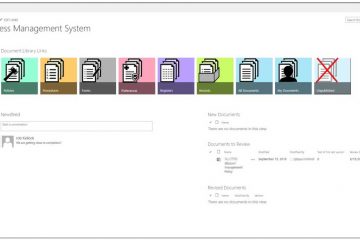ISO Certification in 14 days

There are companies out there offering ISO certification in a really fast 14 days. They are also claiming that there is no work you need to do apart from paying their fees. These companies obviously compete for the same customers as RKBC, but we don’t offer a 14-day service or anything close to one. Should we? Can we? This article explores these services and helps you decide whether they are the right service for you.
ISO Certification Stages
There are many stages to certification for a detailed explanation see The process of obtaining ISO Management System Certification, but here we will just look at a simple list of what needs to be done:
- Plan the management system
- Develop the management system
- Implement the management system
- Internal Audit
- Management review
- ISO certification (desktop review and implementation audit)
14-Day Countdown
Let us assume these companies need 14 business days (to be generous) and we’ll assume the following:
14 days to Certification – Planning
The consultants use a questionnaire to plan the development of your management system. If well designed it can be completed in minutes, although it still will require your input!
Our opinion: A quick questionnaire can’t assess the adequacy of the existing processes so the consultants must be ignoring them. We use a questionnaire to quote, and we find that it isn’t a wholly reliable approach. When we put people on the spot, they provide answers which aren’t always accurate. People often forget things like future products, services, roles, premises, etc. They tend to overlook processes, events, and risks that only happen occasionally. Because of the fast and ‘hands-off’ build approach the process is unlikely to uncover any of the forgotten stuff. Existing management system-related processes (such as management of training, pricing, asset management, etc.) are likely to have to be discarded in favour of the consultant’s preferred processes.
13 days to Certification – System Development
The Management System the consultants provide is likely to be an ‘off-the-shelf’ template. With the time constraints, the consultants are unlikely to include more than a couple of your business-specific processes, if any. These system documents will need to be sent to the Certification Body straightaway, even though you have not properly reviewed them. Most Certification Bodies need time to book in a review of your system and time to conduct the review so there can be no delay in sending.
Our opinion: We spend about the same number of days on writing an integrated quality, safety, and environmental management system for a small business that these companies spend on the entire process, so they can’t be tailoring very much to suit the customer. Our customers tend to take more time to review the documents than we do writing them. If we assume the consultants allow themselves just 2 days to get the documents ready, that is quick and would probably need multiple staff to make it happen in such a short time frame. As such, it is doubtful they will have time to nicely format documents using the company’s preferred corporate branding and style. The chances that they can provide a suite of bespoke operational processes are unlikely.
11 days to Certification – Implementation
The consultants provide little instruction in the management system’s operation because they have documentation that explains how it should work. They provide very little time for you to implement the system (we are guessing less than 2 weeks). As you have not really implemented the system you won’t know how well it works or if it’s appropriate for your business. We assume the consultants also provide the management system with pre-populated records as they say they do everything, and you don’t have to do anything.
Our opinion: Although we believe they will provide documentation to help you understand the management system this is not a good alternative for face-to-face learning. Learning from documentation alone is hard work. And according to these companies you shouldn’t need to do any hard work. So how would it work?
Certification Bodies expect to see the management system in operation before they certify it, so they must provide records. But how can those records align with your operations? Take an asset register for example. For these companies to do the work for you, you would still have to provide them with the assets to add to the register. How do you do this without doing any work? Unless they populate the register with assets that aren’t yours.
2 days to Certification – Internal Audit
You now have a management system that you have had for a week or so. With work, you may have implemented some of it, but certainly not all the processes, but we are going ahead and conducting an internal audit anyway. The consulting company logs the audit findings from the audit into the nonconformance/improvement process for rectification. We believe the audit should raise many deficiencies but suspect there will be only a few. Lots of deficiencies mean lots of work for you and the consultant and that all takes time and is against their way of thinking.
Our opinion: Are you likely to have launched a new product, started a new project, received a customer complaint, completed a design, reviewed a new risk, raised a non-conformance, modified a system document, and had an incident all in that week? Unlikely! So, this barely implemented system is now being audited. Done properly, an audit would report that the system is not implemented and not ready for certification. If this audit reports anything less significant, it would be a poor audit.
1 day to Certification – Management Review
The consultants conduct the management review, presumably without you (remember “no work for you – they do everything”). Reporting against objectives is completed using records that are not yours because you haven’t had a chance to create any yet. You are reviewing the management system for adequacy (even though you have barely had a chance to use it yet). You share a summary of the review with staff because that’s an ISO requirement, but they barely understand it or why you are showing it to them.
Certification Day
Today you have your audit against a system that is an ‘off-the-shelf’ system, which doesn’t suit your business. You have had limited training to use it. You are not familiar with it. And despite this, you have been promised your organisation will pass the Certification Audit arranged 2 weeks ago.
Our opinion: How do you make guarantees of certification under these circumstances? How can you guarantee a pass with such little consultant and management system contact time (remember they do everything for you – you just pay the fees). Has the consultancy made a deal with a Certification Body? This collusion is against the rules which JAS/ANZ enforces. So, either the Certification Body is risking its ability to certify, or it isn’t accredited by JAS/ANZ. And if it’s not JAS/ANZ accredited you may find your customer unwilling to accept their certificate.
Certification Bodies sometimes need 6 weeks lead time to arrange an audit. How do you guarantee a successful audit in two weeks unless there is something different about your relationship with this Certification Body? A consultant should be working in the interests of their client. If they have an agreement with a single Certification Body, they can’t be working in the best interests of their client (see Are Certification Bodies all the same?).
Summary
It is not our place to tell you not to use services that provide guarantees of ‘ISO Certification in 14 Days’. However, if you do and get a certificate (hopefully a JAS/ANZ one) we will expect to see you soon. Many of our customers who bought ‘off-the-shelf’ management systems, found them unworkable. Those customers come to us to help fix those systems and often it’s easier to rebuild rather than fix. Those customers ended up paying twice for a management system. As a business owner, it’s also not great to launch an unworkable management system in the workplace. Poor systems frustrate workers and replacing a system shortly after launching it can cause change fatigue. Better to get it right first time.
Contact
Want to know how quickly we can build a real management system? Contact us to find out.


0 Comments